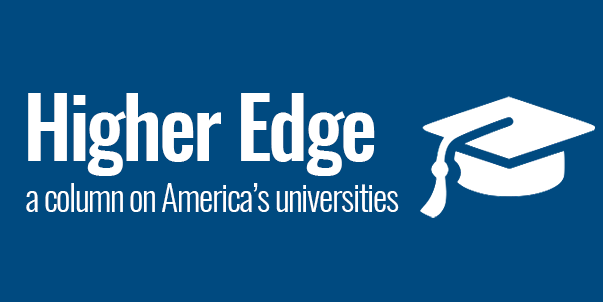2016 has been the year of asking some nearly unthinkable questions in politics, so why not try one of our own: If Donald Trump, with all his bigotry and hair spray, were invited to speak on Georgetown’s campus, how should students react?
Protest, of course.
College students have a long history of meaningful protest, and our generation’s turn to take up the mantle has arrived. We could start by preventing people like Trump from using our universities as launchpads for their campaigns of fear and division.
But how? That’s where it starts to get interesting.
For several years now, invitations to speak on a college campus have come with a caveat. While the host organization – be it a club, lecture fund, or university itself – may want a speaker’s presence and insight, significant portions of the student body may not share this desire. Across the country, students have demonstrated against speakers of all types, usually arguing that they find the views of the speaker offensive.
This dynamic has raised pressing questions about the intersection of free speech and activism on campus, with college students described as everything from coddled to totalitarian. And yet, if political correctness might have occasionally gone too far in limiting speech, nothing has reminded us of its value like the gleeful minority-bashing favored by the Republican front-runner.
If Trump were to win the nomination, or even the presidency, he could conceivably end up receiving an invitation to speak at Georgetown. If that were to happen, what should we do? Or, in a scenario that does not involve that nightmare, how should students respond to the presence of an invited speaker who they find especially offensive?
How can students demonstrate that they disapprove of exclusionary politics without allowing people like Trump to further twist themselves into martyrs for speaking one’s mind?
With a troll like Trump, demonstrations often seem just to give him greater fuel. His supporters delight in his willingness to call it as he sees it, no matter how impaired his vision may be. Media clips of Georgetown students – the closest thing to an establishment-in-training that exists – shouting their opposition might do little more than further his appeal among voters disenchanted with established codes of political speech.
Someone like Trump demands a special kind of pragmatism. A standard student protest, with its signs and chants and corresponding safe space, could too easily end up as a punching bag of political correctness for his undersized fists to pummel. It is crucial that a protest holds both the moral and the political high ground. With Trump, the former is simple, while the latter will require a much more careful effort.
In my mind, the most effective approach would be to look for ways to starve the reality star of the attention on which he thrives. We could boycott the speech, allowing pictures of a near-empty lecture hall to circulate on Twitter. If we wanted to be really creative, we could organize a campus-wide community service day, with as many Georgetown students as possible participating. This would have the benefit of insulating the protest from backlash – Who would possibly attack community service? – while making clear that our campus has no interest in Trump’s divisive words. We might even get some members of the media to tag along with us instead of covering the speaking event.
Or we could host as many campus events as possible at the same time as the speech in order to disperse student and media attention. Or pack ourselves into Gaston and, as a group of activists recently did during a rally at Radford University, crack open a book to read, remaining totally silent for the entirety of his comments. Or really anything else that might deny the Trumps of the world a little bit of the spotlight they so desperately seek (and far too often receive).
I don’t have the perfect answer, but that’s not really the point. I’m not prescribing an exact course of action, but begging others – at Georgetown, and across the country – to start thinking about one as this campaign season continues. The urgency of supporting rational, inclusive politics in the time of Trump is such that we must be prepared to stifle bigotry when it appears in our midst, and students are among the best equipped to do so.
Donald Trump deserves mockery and denunciation for a long list of actions taken both before and during this campaign, but there is no doubting that he has played the media game well. If we, the students, are to stand in opposition to this bully and bigot, then we must also play to political and media narratives. We must be pragmatic. In the time of Trump, the cost of losing is too high to allow for anything else.





